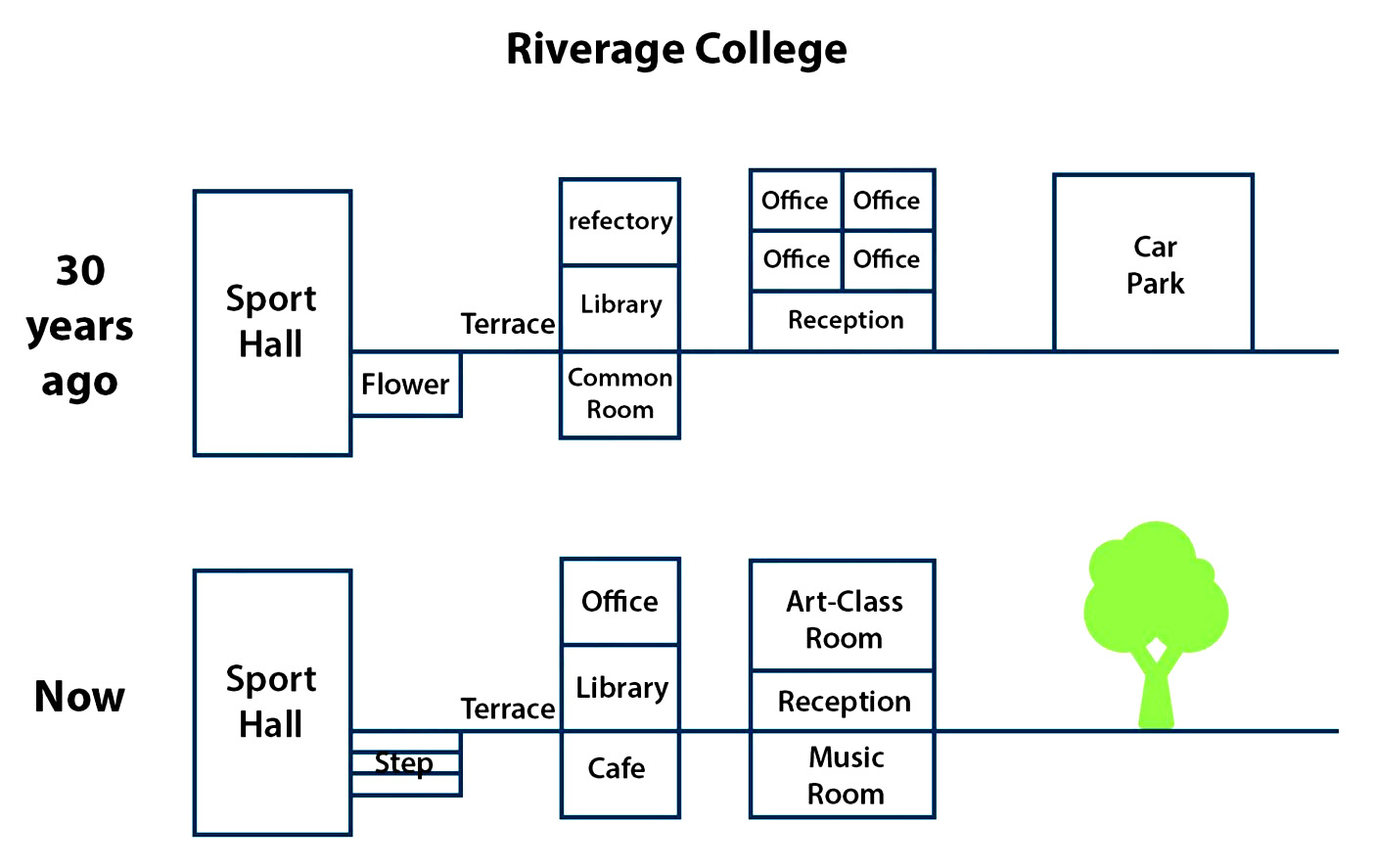IELTS Writing Recent Actual Test 56
WRITING TASK 1
You should spend about 20 minutes on this task
The maps below show information about the change of Riverage college 30 years ago and now.
Write at least 150 words.

WRITING TASK 2
You should spend about 40 minutes on this task
Write about the following topic:
Some people think that developing countries need financial help from international organizations. Others think that it is practical aid and advice that is needed. Discuss these views and give your own opinion.
Give reasons for your answer and include any relevant examples from your own knowledge or experience.
Write at least 250 words.
SAMPLE ANSWER IELTS WRITING TEST 56
WRITING TASK 1The maps indicate several significant changes in Riverage College over a period of 30 years.
Overall, it is noticeable that the college has been changed substantially, with some new additional features being added to the site and a number of rooms being converted for different uses.
The only facilities that haven’t been changed on the site in the 30 years are the Sport Hall, the Library, and the Reception. The terrace located between the library and the Sport Hall still remains in place though the adjacent flower garden is now a set of steps. The old car park has been removed and trees planted in its place.
The four office rooms previously located above the Reception have since been replaced with an Art class room, and the offices combined into one larger space now located above the library, where the refectory once was. Below the library a café has now replaced what was once the common room, and a new room has also been constructed underneath the Reception which is now used as a Music room.
(176 words)
WRITING TASK 2There is a difference in opinions as to what form of international aid is more effective for third world countries. In my view, support in the form of money shows less practicality than other types of useful aid and consultancy.
On the one hand, I understand why some people argue that it is best to provide financial assistance to developing countries. Firstly, financial aid from developed countries enables governments of poorer nations to implement important infrastructural development, such as healthcare systems, fresh water and power supplies. This can help to avoid stagnation of development and help a country to foster economic progress. Secondly, when state income from taxes is inadequate, foreign cash injections are vital to maintain effective administration systems by paying salaries for government staff members in all sectors of a nation’s government.
On the other hand, I do agree with those who believe that other forms of assistance should be given. Sustainable growth does not merely depend upon money, but on how a country is governed and directed, particularly diplomacy and the resolution of serious issues like poverty, crime, and unemployment. In this spectrum, less developed countries certainly do not have enough experience, which emphasizes the need for direction and consultancy from other more experienced governments and organizations. Furthermore, even if financially supported, third world countries still need experts in the fields of science, law and medicine in order to help maintain their development in such areas. However, scientists, lawyers and doctors can only be trained, and professional and systematic education and training programs are therefore more practical and suitable in the context of developing nations.
In conclusion, owing to the aforementioned arguments, it seems to me that instead of monetarily assisting poor countries, global help should come in other forms such as advice and education.
(298 words)
